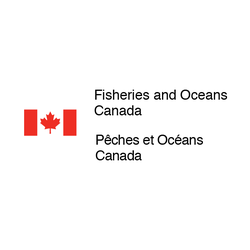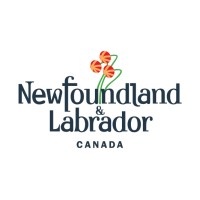
Aquaculture Capital Equity Program
At a glance
- Maximum amount : 250,000 $
- Minimum amount : 250,000 $
- Up to 20% of project cost
- Unspecified
- Agriculture, forestry, fishing and hunting
- Newfoundland and Labrador
- For-profit business
- All revenue ranges
- All organization sizes
- Rural or Northern Residents
Overview
This program offers at least $250,000 for finfish operations and $100,000 for shellfish operations to match private sector cash investments.
Activities funded
The Aquaculture Capital Equity Program specifically targets projects that aim to enhance aquaculture productivity in Newfoundland and Labrador. Eligible activities are geared towards increasing production capacity at hatcheries and marine sites through significant capital investment.
- Expansion of finfish hatchery operations.
- Development or modernization of marine aquaculture sites for finfish.
- Enhancement of shellfish cultivation operations.
- Acquisition of advanced aquaculture technology and equipment.
- Implementation of sustainable aquaculture practices to boost output.
Eligibility
Eligibility for this grant requires companies to meet specific criteria demonstrating their business plan's soundness and operational capacity.
- The company must demonstrate strength in their business plan, covering technical, marketing, and management capabilities.
- The company must be financially sound and capable of matching the investment with private sector cash investment.
- The company must be involved in aquaculture operations within Newfoundland and Labrador, focusing on either finfish or shellfish production.
Who is eligible?
The Aquaculture Capital Equity Program is available to companies operating in the aquaculture sector in Newfoundland and Labrador. This includes businesses involved in farming Atlantic salmon, Steelhead trout, Atlantic cod, and blue mussels. Eligible companies must demonstrate strength in all aspects of their business plan, including technical proficiency, marketing capability, and management expertise.Eligible expenses
The grant program is designed to support the expansion and intensification of aquaculture activities in Newfoundland and Labrador. It focuses on increasing production capabilities and infrastructure development for finfish and shellfish operations.
- Expansion and development of hatchery production systems for finfish.
- Enhancement of marine site infrastructure for finfish and shellfish aquaculture.
- Investment in new and existing aquaculture technologies to improve operational efficiency.
- Initiatives to increase production capacity and output in aquaculture ventures.
Eligible geographic areas
This grant is intended for businesses operating within the Newfoundland and Labrador province. The eligible locations are designed to support the regional aquaculture industry.
- Companies located in Newfoundland and Labrador, Canada.
Selection criteria
The evaluation and selection of projects for the Aquaculture Capital Equity Program are based on the strength of the business plan across technical, marketing, and management capabilities, although specific point scores are not provided.
- Technical soundness and feasibility of the business plan.
- Marketing strategies and plans for product distribution.
- Management capability and track record of the company.
- Financial soundness and adequacy of capital structure.
How to apply
Initiate Contact
- Contact the Director of Aquaculture Development for consultation.
- Use the provided phone number, Tel: (709) 292-4100, or Fax: (709) 202-4113.
Obtain Documentation
- Request the Aquaculture Capital Equity Program Brochure and Policy and Procedures Manual.
- Ensure you have access to Adobe® Acrobat® Reader to view documents.
Develop Project Proposal
- Prepare a comprehensive project proposal demonstrating technical and marketing strength, management capabilities, and financial soundness.
- Identify matching private sector cash investment for your project.
Formal Application
- Complete all required application forms as outlined in the Policy and Procedures Manual.
- Compile necessary supporting documents, such as business plans and financial statements.
Submit Application
- Submit your formal application and all supporting documents to the Department of Fisheries, Forestry and Agriculture.
- Follow any specific submission instructions provided during initial contact.
Await Response
Additional information
Here are additional relevant details for this grant:
- The minimum investment requirement is $250,000 for finfish operations and $100,000 for shellfish, with a matching private sector investment.
- Prospective applicants should contact the Director of Aquaculture Development for guidance and support.
- The program not only encourages financial soundness but also emphasizes technical and management capability proofs in business plans.
- The use of Adobe® Acrobat® Reader software is recommended for accessing program documents such as the brochure and policy manual.
Contacts
Frequently Asked Questions about the Aquaculture Capital Equity Program Program
What is the Aquaculture Capital Equity Program?
How much funding can be received?
What expenses are eligible under Aquaculture Capital Equity Program?
What is the deadline to apply?
Is the Aquaculture Capital Equity Program a grant, loan, or tax credit?
Who are the financial supporters of the Aquaculture Capital Equity Program?
Who is eligible for the Aquaculture Capital Equity Program program?
Who can I contact for more information about the Aquaculture Capital Equity Program?
Where is the Aquaculture Capital Equity Program available?
More programs like this

The Newfoundland and Labrador Disaster Financial Assistance Program (NL-DFAP)
Government of Newfoundland and Labrador
Employment Enhancement Program
Population Growth and Skills
Direct Equity Tax Credit
Government of Newfoundland and Labrador
Multi-Species Research and Development Fund
Department of Fisheries, Forestry and Agriculture
Atlantic Fisheries Fund — Innovation
Fisheries and Oceans Canada (DFO)
Business Investment Program — Equity Investment
Government of Newfoundland and Labrador
NRC — Refrigerated material test laboratory (Cold test labs) Research Facility
National Research Council Canada (NRC)
Newfoundland and Labrador interactive digital media tax credit
Government of Newfoundland and Labrador
Business Retention and Expansion Program
Government of Newfoundland and Labrador